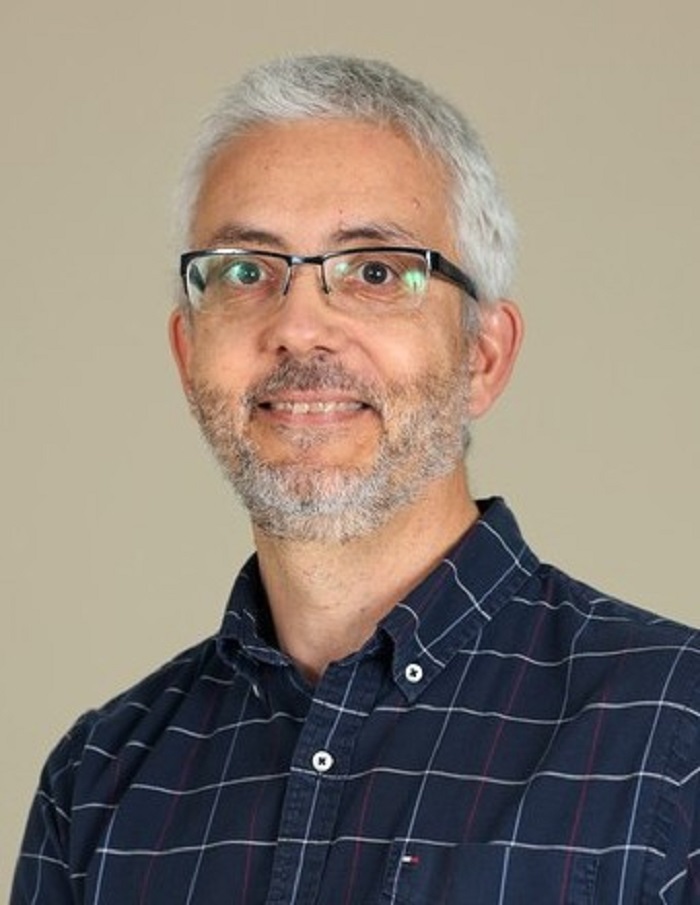
23-10-2020
Seminario de Investigación: Priones y enfermedades tipo prion: tratando de comprender su mecanismo de acción
Joaquín Castilla Center for Cooperative Research in Biosciences (CIC bioGUNE) & IKERBASQUE, Bilbao
Resumen: Prion and prion-like diseases. Understanding their mechanism of propagation
The vast majority of neurodegenerative diseases such as Alzheimer's Disease, Parkinson's, ALS, or prion diseases to give an example, are associated with the accumulation in the brain of a protein malplegada. Although there is evidence to indicate that the misfolding and subsequent formation of small aggregates of said protein is one of the crucial events in these diseases, the molecular mechanisms by which these aggregates cause the disease are still unknown. Recently it has been shown that the formation of misfolding proteins can be induced by injection of brain extracts from patients diagnosed with some of these diseases in animals without previous exposure to this material, never develop these alterations. These results suggest that some of the brain abnormalities associated with these neurodegenerative diseases can be induced by a mechanism similar to that occurring during propagation transmissible spongiform diseases, also known as prion diseases such as disease 'mad cow'.
Our group works on the model of prion disease to understand the mechanisms of infectivity, strain and interspecies transmission. These studies are helping to understand the molecular mechanisms involved in the initiation of these diseases and may contribute to the development of new strategies for prevention and intervention.
Bio: Dr. Joaquín Castilla is a senior investigator incorporated at CIC bioGUNE in 2009. He has a long experience of working with prions since 1998 at Center for Animal Health (CISA -INIA). In 2003, he moved to Switzerland to work as Research Scientist at Serono Research Institute. He became Assistant Professor this year, first at the University of Texas, Medical Branch and later at Scripps (Florida) from 2006 leading an independent group. His expertise is based on the in vitro and in vivo propagation of prions. In particular, his group is studying the strain and transmission barrier phenomena in a cell free system, trying to dissect the molecular mechanisms by which prions propagate and focusing on new anti-prion therapeutic approaches. His most important achievements are: i) development of the most sensitive method for prion detection; ii) generation of prion infectivity in a test tube contributing to the validation of the “protein-only” hypothesis; iii) prion detection in blood for the first time in pre-symptomatic and symptomatic animals; iv) confirmation that the in vitro prion propagation faithfully mimicked the three major phenomena governing prion diseases: infectivity, strain concept, and transmission barrier; and v) the develop of a new methodology to produce a diversity of infectious recombinant prion strains. This procedure is allowing to obtain structural data about infectious prions.
Dr Castilla has published more than 100 peer reviewed articles (H index: 37 – Times cited: 4680 - Cumulative IF: ~735) which many of them have been instrumental for understanding the molecular mechanisms for prion propagation.
Fecha y hora: viernes, 23 de octubre de 2020, Videoconferencia 12:30 h.
Asistencia virtual on-line vía TEAMS, solicitar invitación a pablo.rubio@uam.es
Dada la situación motivada por la pandemia SARS-CoV2, la asistencia presencial está limitada a los alumnos matriculados en la asignatura “Vanguardia de la Neurociencia”. No obstante, el Seminario está también abierto para el público general de forma telemática, a través de la Plataforma Microsoft Teams de la UAM (Equipo “Vanguardia de la Neurociencia”). Para acceder a dicho Equipo es necesario obtener una invitación nominal. Dicha invitación debe solicitarse al Prof. Pablo Rubio: pablo.rubio@uam.es